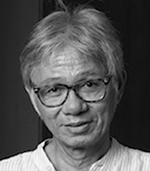
 Just about halfway through his 6-year term, the question is already being asked: How do we clean up after President Rodrigo Duterte?
Just about halfway through his 6-year term, the question is already being asked: How do we clean up after President Rodrigo Duterte?
How do we undo his drug war, which has claimed thousands of lives but still done nothing to curb drug trafficking? Or recover the strategic and mineral-rich territorial waters he has treasonously ceded to China in exchange for odious patronage? Or, indeed, restore the values lost under his corrupt and lawless regime?
Duterte may have been prodigious at making a mess, and far from done with it, but his is only the latest in a rarely broken run of messy Philippine leaderships, which may be the reason why we have scarcely progressed as a nation: bad leaders leave so much mess good leaders find no time to do anything else other than clean up.
Which has been our precise fate through all contemporary history, since we gained independence from the United States, in 1946. Thus, the theory gets debunked that a nation emerging free from colonization with abundant natural resources and potential leaders highly educated and cosmopolitan in outlook cannot fail. We are in fact a shameful disproof: nations who themselves conceded regional leadership to us in economic development have got ahead.
Not to make any excuses, we actually proclaimed ourselves a republic without having yet become fully free. For one thing, we had to share with the Americans equal rights to all the wealth of our earth and waters. “Parity,” as the deal came to be called, was supposed to buy us the US dollars we needed to rebuild our country from the ruins of war.
We also had to allow the Americans to retain their military bases under a new treaty that provided for mutual defense, which actually rationalized their intimidating post-colonial presence. Those bases would in fact come in handy in their neocolonialist adventures elsewhere in the region – for instance, as a springboard for air raids and other operations in the Vietnam War. They would finally go in 1992, amid an explosion of nationalist fervor.
Parity went much earlier, but not in one go, as did the bases. It was worn away over the years by countervailing amendments, laws, and policies. In the late ’50s, President Carlos Garcia took the most defiant initiative to date: his Filipino First policy gave priority and state assistance to local entrepreneurs, particularly in the establishment of basic industries like steel, power, and manufacturing. But the advantage was taken away by his successor, Diosdado Macapagal: his “decontrol” let private enterprise, left pretty much alone by the government, drive economic development.
For all his warpath declarations on graft and corruption, Macapagal was linked to one of the most infamous bribery scandals in the nation’s history. It involved the great corruptor Harry Stonehill. A retired American soldier who had set himself up in Manila right after the war, Stonehill quickly flourished in business by paying off officials at the highest levels. Deported before he could be made to talk, he flew away posthaste with his secret “blue book” of bribe-takers.
After Macapagal came Ferdinand Marcos, whose intellectual brilliance and oily rhetoric inspired both hope and suspicion.
He had made great drama of a vision touted as “A New Society,” one disciplined and free of corruption. After two decades as President, the last 14 years as a dictator, he left a trail of torture and murder and cronyism and plunder. A terminal kidney case, he would die 3 and a half years later in Hawaiian exile.
Inheriting a huge foreign debt, Corazon Aquino, widow of Marcos’ assassinated archrival, Ninoy, could do little more than begin reestablishing her nation’s waylaid democratic institutions and damaged international reputation. Her anointed successor, Fidel Ramos, carried on, making some economic headway, but he had to pass on the presidency to another would-be plunderer – Joseph Estrada.
Estrada would be impeached in midterm and, like Marcos, forced out of office by popular protests. He would be convicted in court. But, pardoned by Gloria Arroyo, who stepped up from Vice President to succeed him, he would be allowed to run for mayor of Manila, the national capital, and win.
After serving the more than two remaining years of Estrada’s term, Arroyo, daughter of President Macapagal, won her own presidential vote and completed her 6-year term, only to end up in detention for plunder herself, prosecuted by the quiet, no-nonsense government of Benigno Aquino III, Ninoy and Cory’s son. But a Supreme Court, whose majority Arroyo had the opportunity to appoint owing to her unusually long incumbency, ordered the case against her dropped for insufficient evidence.
Around the same time, the same court approved a hero’s burial for Ferdinand Marcos, whose remains his family, with seemingly knowing confidence, had tried to preserve for the occasion.
Marcos’ heirs, Arroyo, and Estrada are now aligned with Duterte and, all together, they have been making a fine mess. – Rappler.com